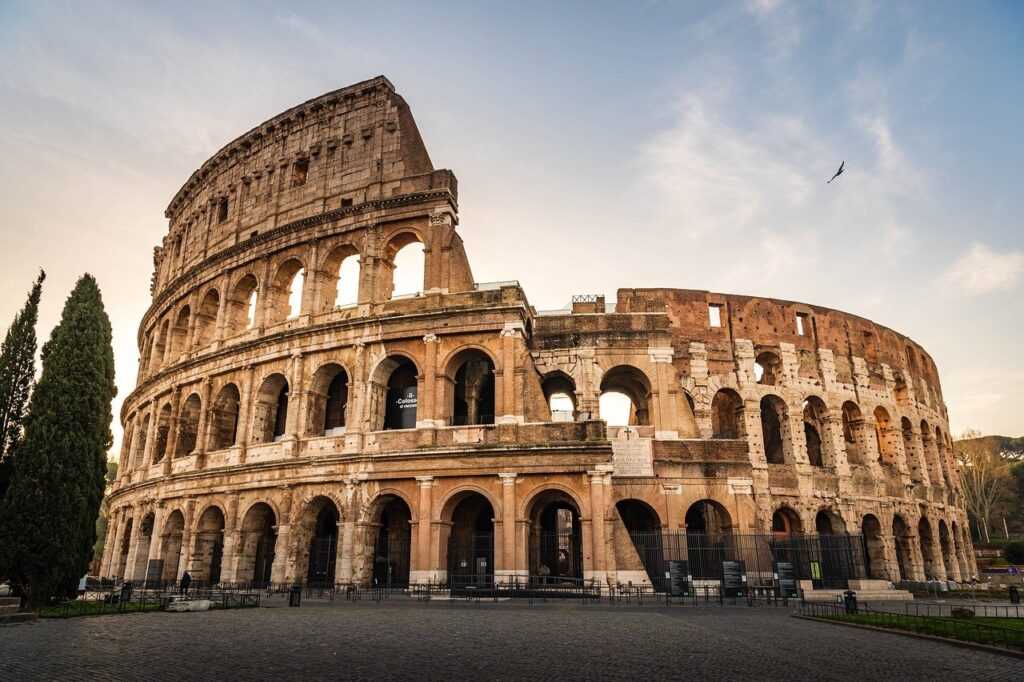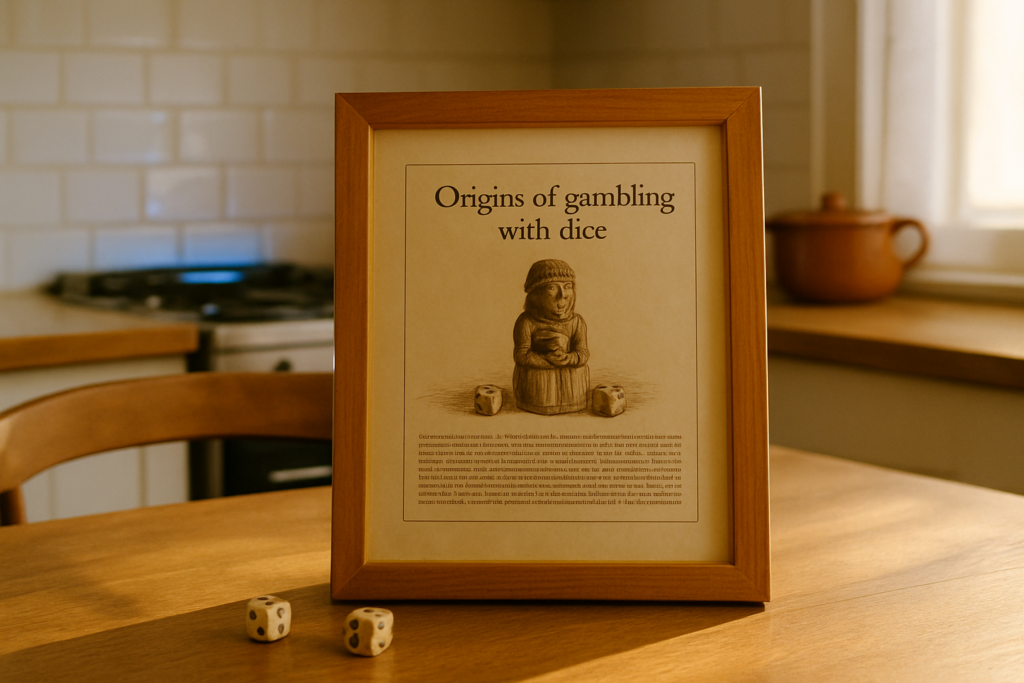In ancient Rome, the thrill of watching gladiators battle in the Colosseum or chariots race in the Circus Maximus was not the only source of excitement for the spectators. Betting on these spectacles was a popular pastime that added an extra layer of anticipation and fervor to the events. As a historian fascinated by the intersection of sports and culture, delving into the world of ancient Roman betting practices reveals intriguing insights into the society of that time.
Imagine the roar of the crowd, the dust kicked up by charging chariots, and the adrenaline rush of placing bets on the outcome of these legendary contests. Exploring the nuances of how bets were placed, the odds calculated, and the winnings distributed offers a glimpse into the gambling habits of ancient Romans. Join me on a journey back in time as we uncover the fascinating world of betting in ancient Rome, where fortunes could be won or lost with the turn of a chariot wheel or the clash of gladiatorial swords.
Overview of Betting in Ancient Rome
Exploring the world of ancient Roman betting practices provides fascinating insights into the society of that era. In ancient Rome, betting on spectacles such as gladiator battles and chariot races was immensely popular, adding an extra layer of excitement for spectators.
Betting on these legendary contests was a common pastime, with individuals placing their bets on the outcomes of the events. The thrill of wagering on the prowess of gladiators or the speed of charioteers captivated the Roman audiences, creating a vibrant atmosphere in the amphitheaters.
Calculating odds and determining potential winnings were crucial aspects of ancient Roman betting. Bookmakers, known as “the designators,” played a key role in setting odds and managing the betting process. Depending on the popularity of the competitors and the perceived chances of winning, odds would fluctuate, influencing the bets placed by spectators.
Winners of bets in ancient Rome stood to gain significant fortunes, while those on the losing end faced potential financial losses. The outcomes of gladiator battles and chariot races could sway the fortunes of individuals who had wagered on the events, making each spectacle a thrilling and suspenseful experience.
By delving into the nuances of how bets were placed, odds were calculated, and winnings were distributed in ancient Rome, we gain a deeper understanding of the cultural and social dynamics of that time. The tradition of betting on these spectacles not only entertained the Roman populace but also reflected the values and priorities of society during this historical period.
Gladiators: Entertainment and Betting
Betting on gladiator battles was a prevalent practice in ancient Rome, adding excitement to the already thrilling spectacles. The gladiatorial games were not just about the fights but also about the bets placed on the outcomes.
- Types of Bets on Gladiators
In the world of ancient Roman betting, various types of bets were placed on gladiator combat. Spectators could wager on the victor of a specific match, the techniques used by the fighters, or even the duration of the battle. These diverse betting options added layers of intrigue to the already intense contests.
- Popular Gladiators in Betting Circles
Certain gladiators became favorites among spectators and betting circles due to their skills, charisma, or compelling backstories. Fighters like Spartacus, known for leading a slave revolt, garnered significant attention both in the arena and in the realm of betting. The popularity of these gladiators influenced betting trends and added an extra dimension of excitement to the games.
Chariot Races: Thrills and Wagers
Wagering on Chariot Racing
Chariot racing was a beloved sport in ancient Rome, attracting vast crowds eager to witness the adrenaline-fueled competitions. Spectators not only reveled in the thrill of the races but also engaged in intense betting activities to amplify their excitement. Betting on chariot races involved a variety of wagers, from predicting the winning team to speculating on the number of laps completed or even the performance of individual charioteers.
Charioteers became celebrities in their own right, with fan followings akin to modern-day sports stars. The fierce rivalries between racing factions, such as the Blues, Greens, Reds, and Whites, added an extra layer of intensity to the betting experience. As I delve into the world of chariot racing, I uncover the intricacies of ancient Roman wagering practices, revealing how these events not only entertained the masses but also created a vibrant gambling culture intertwined with the spirit of competition.
Influence of Betting in Ancient Rome
Exploring the influence of betting in ancient Rome reveals a fascinating intersection of entertainment, social dynamics, and economic activities. The practice of betting on gladiatorial combats and chariot races held a profound impact on Roman society, shaping the cultural fabric of the era.
Socioeconomic Significance:
Betting was not merely a form of entertainment but a reflection of societal values and power dynamics. It served as a means for individuals to showcase their wealth, status, and influence through lavish wagers on sporting events. The ability to place substantial bets symbolized one’s social standing and financial prowess in Roman society.
Cultural Integration:
The prevalence of betting in various public spectacles, including gladiatorial contests and chariot races, integrated gambling into the everyday lives of Romans. The blending of leisure activities with wagering practices highlighted the deep-rooted connection between entertainment and monetary pursuits in ancient Rome.
Community Engagement:
Betting on sporting events fostered a sense of community cohesion and camaraderie among Romans. Shared anticipation, excitement, and friendly rivalries arising from wagering on gladiatorial matches and chariot races brought individuals together, transcending social boundaries and reinforcing unity within the populace.
Political Implications:
The widespread participation in betting activities also had political implications, influencing public opinion and socio-political dynamics in ancient Rome. The outcomes of sporting events often held symbolic significance, affecting public morale and perceptions of authority figures, thereby intertwining sports betting with broader political narratives.
Economic Stimulus:
Beyond its social and cultural ramifications, betting in ancient Rome stimulated economic exchanges and commercial activities. The circulation of wealth through wagers, betting transactions, and prize distributions contributed to economic growth, bolstering trade networks and financial transactions within the Roman Empire.
Legacy and Endurance:
The legacy of betting in ancient Rome transcends its historical roots, leaving a lasting imprint on contemporary gambling practices and entertainment industries. The enduring influence of Roman wagering traditions can be observed in modern-day betting customs, highlighting the enduring impact of ancient Roman culture on present-day recreational activities.



 Aaron Delvalle is the insightful author behind Gamble Wise Roots, where he brings a fresh perspective to the world of gambling. His work covers essential topics such as casino news and updates, simplifying the basics for newcomers, breaking down odds for better understanding, and exploring the rich history and evolution of casino games.
Aaron's deep curiosity about the origins of betting drives his research, offering readers a well-rounded view of the gambling landscape. Through his writing, he aims to educate and engage both novices and seasoned players alike.
Aaron Delvalle is the insightful author behind Gamble Wise Roots, where he brings a fresh perspective to the world of gambling. His work covers essential topics such as casino news and updates, simplifying the basics for newcomers, breaking down odds for better understanding, and exploring the rich history and evolution of casino games.
Aaron's deep curiosity about the origins of betting drives his research, offering readers a well-rounded view of the gambling landscape. Through his writing, he aims to educate and engage both novices and seasoned players alike.
